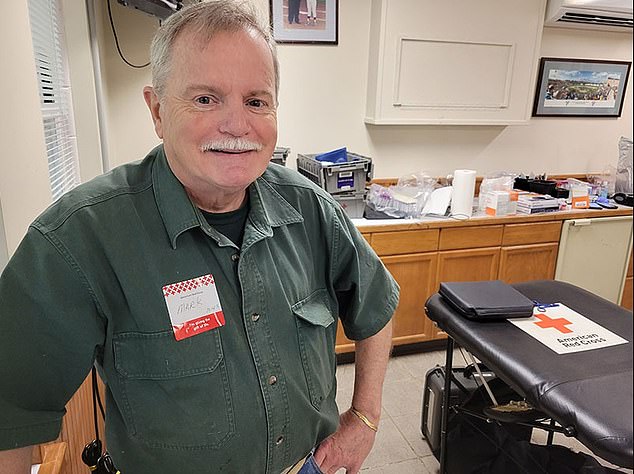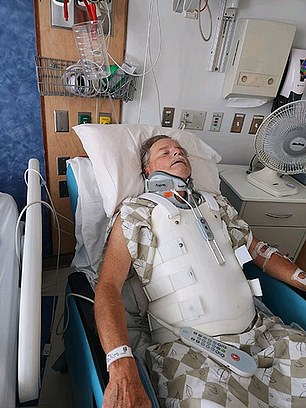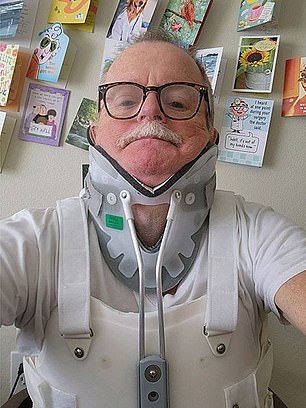Emergency declared as American Red Cross runs out of blood for life-saving donations
A blood shortage emergency has been declared in the US and people are being urged to donate blood to help replenish the supply.
According to the American Red Cross, its blood supply dropped by 25 percent in July as extreme heat across much of the country caused fewer people to show up at donation centers.
At the same time, the organization said demand from hospitals has remained constant, putting significant pressure on their supplies.
The Red Cross — America’s largest blood supplier — is calling for donations of all blood types. But it has been particularly hard-pressed by type O, the most common blood type, with supplies now below “comfort” levels and distributions of that type being reduced.
The shortage has raised concerns that patients may be delayed in receiving blood transfusions, potentially putting their lives at risk.
The Red Cross is the country’s largest blood supplier and is warning of a major drop in donations
Every two seconds someone in the US needs a blood transfusion, with approximately 40,000 units of blood products needed each day, which equates to about 120 bathtubs.
More than 4.5 million Americans receive a blood transfusion each year.
Blood cannot be produced or stored and can only be made available through the goodwill of volunteer donations.
According to the Red Cross, a single car accident victim may require as many as 100 units of blood, while platelets from the blood, which help with clotting, are vital for cancer patients and people who have undergone organ transplants.
According to the Red Cross, almost every state is suffering from the shortage.
To donate blood, people are asked to register and make an appointment with their nearest blood center. A list can be found here.

Mark Munson, a 70-year-old motorcyclist from Maine, is among those calling for more people to donate blood. He needed a transfusion after being involved in an accident that led to severe internal bleeding.


Mr. Munson is pictured above in the hospital recovering from his injuries. He received seven units of blood and says the transfusions saved his life
Dr. Baia Lasky, Red Cross Division Chief, said: “It is essential that blood type O products are readily available to provide timely and life-saving care to patients in need.
‘In a patient who loses a lot of blood, such as in a car accident or a mother who has a severe postnatal hemorrhage, blood group O is the most commonly administered blood group.
‘In trauma patients, every minute of delay can increase the risk of death by five percent.
‘More than a quarter of all blood products are used in intensive care and emergency care situations each year. These transfusions are only available because of the generosity of blood and platelet donors.’
According to the American Red Cross, the shortage is also being driven by summer travel and activities, which often disrupt donations at this time of year.
There are also concerns that fewer people will donate in August, as this is the start of the Atlantic hurricane season, which experts say will be “extremely active” this year.
At the same time, it is combating a decline in donations, which have now reached their lowest level in twenty years.
Data shows that about 4.4 million people donated blood last year, down 40 percent from 20 years ago.
The organization first declared a blood shortage emergency in January as supplies dwindled.
Mark Munson, 70, of Maine is one of those urging others to donate blood after a blood transfusion saved his life.
The motorcycle enthusiast was hit head-on by an SUV just four miles from his home last year, leaving him with multiple broken bones and severe internal bleeding.
He was rushed to hospital, where he was given seven units of blood: five units of packed red blood cells and two units of fresh frozen plasma.
Mr Munson, who has now made a full recovery, said: ‘It undoubtedly saved my life. And if it hadn’t been for it, we wouldn’t be having this conversation. I know that first-hand now.’
He added: ‘Before my accident, the idea of donating blood was an abstract concept. It is no longer abstract. Now it is absolute.’
People can donate both whole blood and blood components, such as red blood cells (which are typically given to trauma patients) or platelets (which promote blood clotting and are used in cancer treatments and organ transplants).
